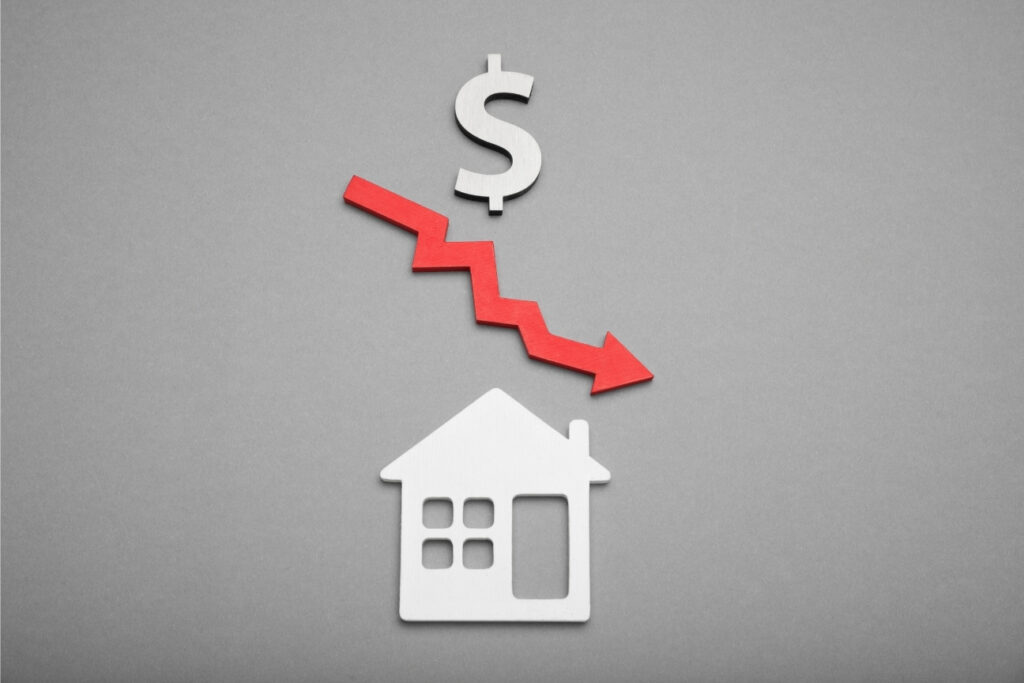Introduction:
The housing market is experiencing a significant downturn as home prices across the country continue to plummet. This alarming trend has left many wondering about the implications it may have on the overall economy and homeowners. In this article, we explore the factors contributing to this decline, analyze its potential consequences, and shed light on whether or not it truly matters.
Understanding the factors behind falling home prices
There are several factors responsible for the current decline in home prices. Firstly, the COVID-19 pandemic has brought about a period of great uncertainty, causing prospective buyers to be more cautious with their investments. Additionally, the imposition of lockdowns and social distancing measures has severely impacted the economy, leading to job losses, reduced income, and financial instability for many individuals. This has resulted in a decreased demand for housing and subsequently pushed prices downwards.
Another significant factor contributing to the declining home prices is the oversupply of housing in certain areas. In recent years, there has been a surge in construction, leading to an excess supply of homes in specific regions. This oversupply has created a buyer’s market, where buyers have more negotiating power, forcing sellers to lower their prices to make a sale.
The potential consequences of falling home prices
While falling home prices may seem like good news for potential homebuyers, several potential consequences need to be considered. One of the most immediate impacts is the negative effect on homeowners’ equity. As home prices decline, homeowners may find themselves owing more on their mortgages than the value of their property. This can be particularly problematic for those looking to sell their homes or refinance their mortgages.
Another significant consequence is the impact on the overall economy. The housing market plays a crucial role in the economy, and a decline in home prices can have far-reaching effects. Firstly, the construction industry may suffer due to decreased demand for new homes and residential development projects. This, in turn, can lead to job losses in the construction sector and related industries such as manufacturing and real estate.
There is also the possibility of a negative wealth effect. As home prices continue to fall, homeowners may see their net worth diminish, which can affect consumer confidence and spending. When consumers feel less wealthy, they tend to cut back on discretionary spending, affecting various sectors of the economy such as retail, hospitality, and entertainment.
The impact on homeowners and potential buyers
For homeowners, declining home prices can result in financial distress and difficulty selling their properties. Individuals who purchased their homes at the peak of the market may find themselves stuck in a negative equity situation, making it challenging to sell without incurring substantial losses. Moreover, homeowners may struggle to refinance their mortgages at favorable rates, leading to higher borrowing costs and potential financial strain.
On the other hand, potential buyers may find this a favorable time to enter the housing market. With prices lower than before, affordability increases, making homeownership a more realistic goal for many individuals. However, it is essential to consider the uncertainty surrounding the stability of the market. While this may be a good time to buy, there is the risk of further price declines in the future, potentially impacting the equity of new buyers as well.
Government interventions and market recovery
Recognizing the potential detrimental effects of falling home prices, governments often implement interventions to stabilize the housing market. These can include measures such as tax incentives for homebuyers, interest rate cuts by central banks, and the implementation of programs aimed at preventing foreclosures and promoting affordable housing initiatives.
Additionally, market forces play a crucial role in the recovery of the housing market. As prices decline, the demand for housing may eventually increase, leading to a more balanced market. Buyers who were previously priced out of the market may enter, effectively absorbing the excess housing supply and stabilizing prices.
Conclusion:
The plummeting home prices are indeed a matter of concern for both the economy and homeowners. The factors contributing to this decline, including the COVID-19 pandemic and the oversupply of housing, have created a challenging situation for sellers and potential buyers alike. While there may be opportunities for buyers, homeowners may face financial strain and difficulty selling their properties. Government interventions and market forces will play a crucial role in determining the trajectory of the housing market and its eventual recovery. As the situation continues to unfold, it is paramount for individuals to stay informed and make informed decisions based on their financial circumstances and long-term goals.



